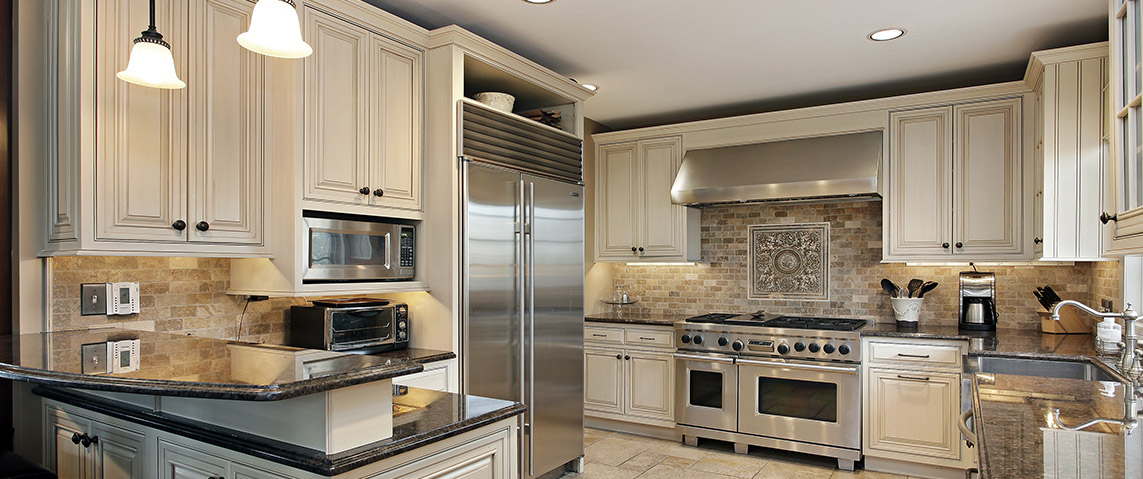The best ways to keep your kitchen appliances safe all year round

In this post, we'll cover
Cooking and kitchen appliances are the most common cause of fires in homes across the UK, highlighting the importance of keeping a check on their condition.
Fire damage can be extremely costly. Appliance insurance will help to cover damages from faulty or dysfunctional appliances anywhere in your home, but, how can you prevent damages in the first place?
Look ahead to see some of the steps you can take to ensure safety and efficiency.
Oven & grill
If you’ve got a gas hob/grill it’s always a good idea to double-check that they are completely turned off and not releasing fumes after use.
It’s helpful to clean the grime and dust on/in your oven, hob, and extractor fan as these can be dangerous fire hazards if they are allowed to build up over time.
Further, with regular cleaning, you should see a boost to the performance and increase in lifespan for both your oven and grill.
Microwave
It’s a bad idea to store or place anything on top of your microwave as this can block the vents that allow for heat distribution. Blocking these vents can lead to overheating and can potentially start fires.
Do not put metal or things that (unless otherwise stated) should not be put in the microwave, in there. It’s extremely dangerous to do so, with fires and toxic fumes just some of the dangerous byproducts.
You should also keep your microwave clean, not only to prevent grease and oil buildup but to keep your food safe from bacteria.
Fridge and freezer
Large kitchen appliances should be plugged directly into plug sockets rather than extensions to ensure maximum safety.
If your freezer is starting to freeze too much, where you can see an accumulation of ice and frost, it should be defrosted. This will help to improve its energy efficiency and performance.
Your fridge and freezer should be cleaned at least once a month to prevent the spread of bacteria. Make sure that there are no leftover puddles of water as these can contain lots of harmful bacteria.
Dishwasher
Check the manufacturer information booklet to see how you can properly clean your dishwasher’s filter. Some dishwasher tablets can help to do this alongside cleaning your dishes.
The efficiency and effectiveness of your dishwasher can be damaged by leftover food products on plates and cups. It’s helpful to rinse plates before they go into the rack.
Washing machine
Cleaning is also the best way to keep your washing machine safe and effective. You can clean both the filter and detergent dispenser.
Some washing machines can be vigorous in their shaking and movement as they spin, keep an eye on how this movement progresses over time as it can become potentially dangerous. This can be caused by overfilling the drum, so keep to what is recommended.
Dryer
A dryer can be an extremely dangerous fire hazard if it’s not properly maintained and cleaned.
It’s important to empty the lint trap as often as you can - ideally before every wash to prevent a large build-up. There are no negatives to doing so, the performance and safety of your dryer will improve.
Takeaway
You can never be too cautious in keeping on top of the condition and efficiency of the various appliances in your kitchen.
Thankfully, there are lots of ways you can minimize the possibility of malfunctions and damage.
Following the tips we’ve suggested, you should see an improvement in the efficiency and safety of all your kitchen appliances.
Feeling the urge to refresh your kitchen? Replacing your tap is a quick and impactful upgrade This guide walks you through the process, from turning off the water supply to disconnecting the old tap and installing the new one. Learn essential tips for a smooth experience, like using the right tools and securing connections properly









